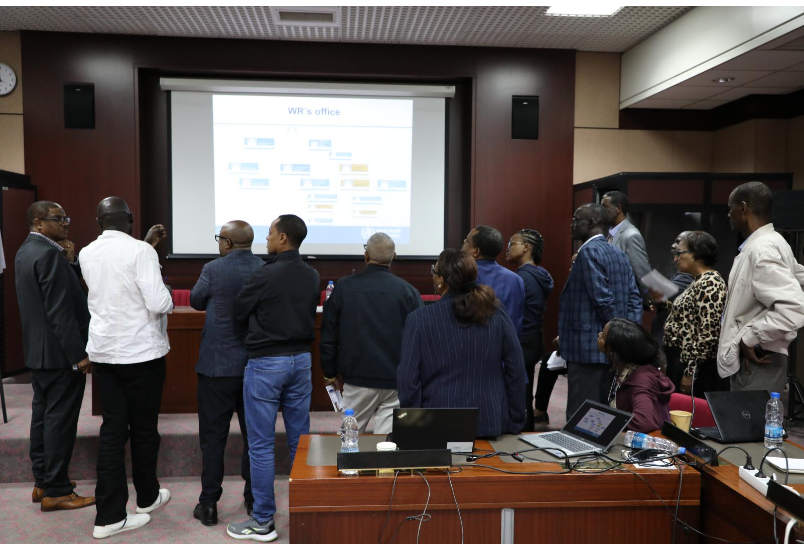 Ethiopia recently held a high-level strategic session aimed at strengthening the country’s response to ongoing health crises while addressing the need for comprehensive organizational reform in its healthcare sector. The session brought together government officials, health experts, and international partners to discuss the challenges posed by public health emergencies, such as disease outbreaks and pandemic preparedness.
Ethiopia recently held a high-level strategic session aimed at strengthening the country’s response to ongoing health crises while addressing the need for comprehensive organizational reform in its healthcare sector. The session brought together government officials, health experts, and international partners to discuss the challenges posed by public health emergencies, such as disease outbreaks and pandemic preparedness.
The World Health Organization’s (WHO) Ethiopia Country Office convened a strategic working session This session is a crucial part of the broader Country Cooperation Strategy (CCS) 2021-2025 implementation, which is now in its fourth year, aligned closely with Ethiopia’s national health priorities. Amidst Ethiopia’s complex health landscape, the WCO is actively engaged in responding to five WHO graded emergencies—including disease outbreaks and humanitarian crises—and several non-graded emergencies such as measles, malaria, and landslides. However, challenges of financial resources availability are impending implementation of key health programs and complicating the overall health response efforts in the country.
The session objectives included: assessing the progress of the 2024-25 biennium workplan, identifying ongoing challenges, and formulating actionable recommendations. It also focused on finding opportunities for synergy across various health programs, with an emphasis on identifying short, medium, and long-term actions. In his opening remarks, WHO Ethiopia Country Representative Dr. Owen Laws Kaluwa emphasized the importance of the session, stating, this session marks a pivotal step in strengthening the WCO’s capacity to support Ethiopia in overcoming its public health challenges and achieving its health objectives in the coming years.
 Participants of the session proposed a fit-for-purpose organizational structure that aligns with the WHO Africa Regional Office (WHO-AFRO) clusters and strategic priorities, including the GPW14. They also reviewed and endorsed strategies for resource mobilization and communication, which are critical for sustaining the WCO’s finances and visibility.
Participants of the session proposed a fit-for-purpose organizational structure that aligns with the WHO Africa Regional Office (WHO-AFRO) clusters and strategic priorities, including the GPW14. They also reviewed and endorsed strategies for resource mobilization and communication, which are critical for sustaining the WCO’s finances and visibility.
The meeting emphasized the importance of creating a more resilient healthcare system, with discussions on improving infrastructure, access to medical supplies, and workforce training. Additionally, the session highlighted the need for organizational reforms, particularly in streamlining processes within the Ministry of Health and related agencies to ensure efficient and timely responses to health crises. Ethiopia’s health sector has faced several challenges in recent years, including strained resources and limited infrastructure, making this strategic session a critical step toward building a more effective healthcare system. The government reaffirmed its commitment to working closely with international donors and organizations to enhance health services across the country and prevent future crises from overwhelming the system.
Ennywealth


